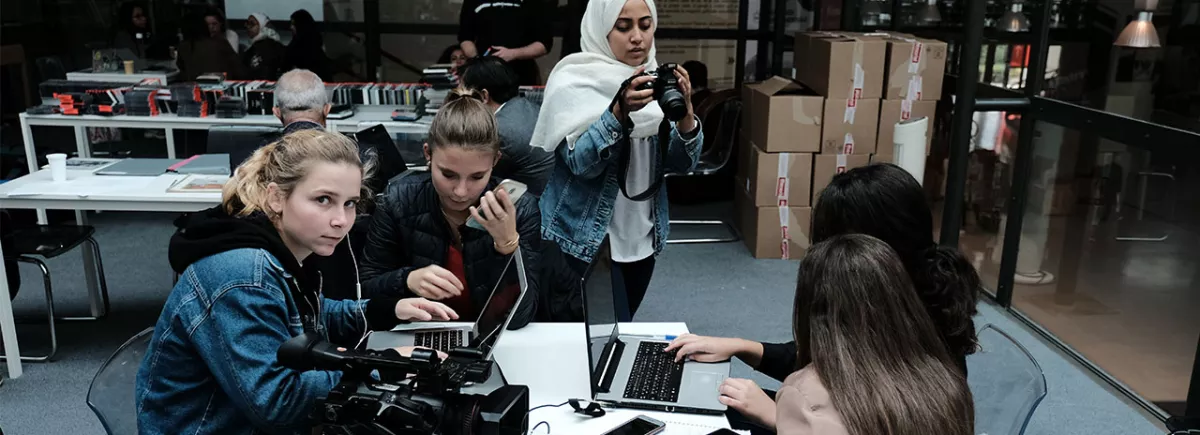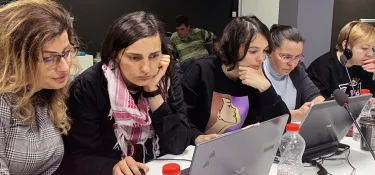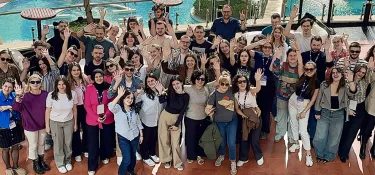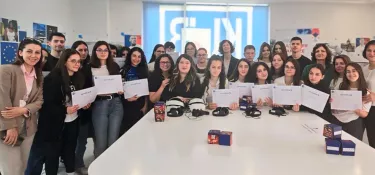
Journalism, gender and war: a master class from France, Tunisia and Lebanon
Related project
MediaLab CampusFrom 7 to 13 October, 18 journalism students from France, Tunisia and Lebanon met in Normandy to produce reports on journalism, gender and war and attend the Bayeux Prize for war correspondents.
The project kicked off with an evening event entitled "Female combatants and civilians: forgotten from history" held at the Mémorial de Caen museum and featuring presentations from Carol Mann (University of Paris 8), Fanny Bugnon (University of Rennes 2) and Jane Wang (University of Beijing).
This round-table discussion was chaired by Sandy Montañola (University of Rennes 1), one of the initiators of this project, which is run jointly by three journalism schools (the Lannion Institute of Technology, the Tunis Institute of Press and Information Sciences and the Lebanese American University in Beirut). Using history, sociology and information communication science, the three speakers presented the features associated with gender in areas of conflict, wars and places of violence, as well as their social imaginaries.
The master class also gave the students the opportunity to visit the Mémorial de Caen museum, focusing on the view of women, the Mémorial des Civils de Falaise museum, the Mémorial de Caen archives, the IMEC (Institute for Contemporary Publishing Archives), the Abbey of Our Lady of the Ardennes and the Calvados departmental archives.
Videos about these visits were produced in French and English.
Interviews with war correspondents
The week culminated in the Bayeux Prize for war correspondents, where the control room of the Lannion Institute of Technology TV studio had been relocated. The students were able to interview war correspondents, such as Martine Laroche-Joubert, Mohammed Abed and Loup Bureau in French, English and Arabic.
Several articles and interviews were also published about this event, in particular by Ouest-France, RCF and Le Télégramme.
Away from the event, the participants were hosted in gites, which allowed them to benefit from intercultural experiences and real-life exchanges.



